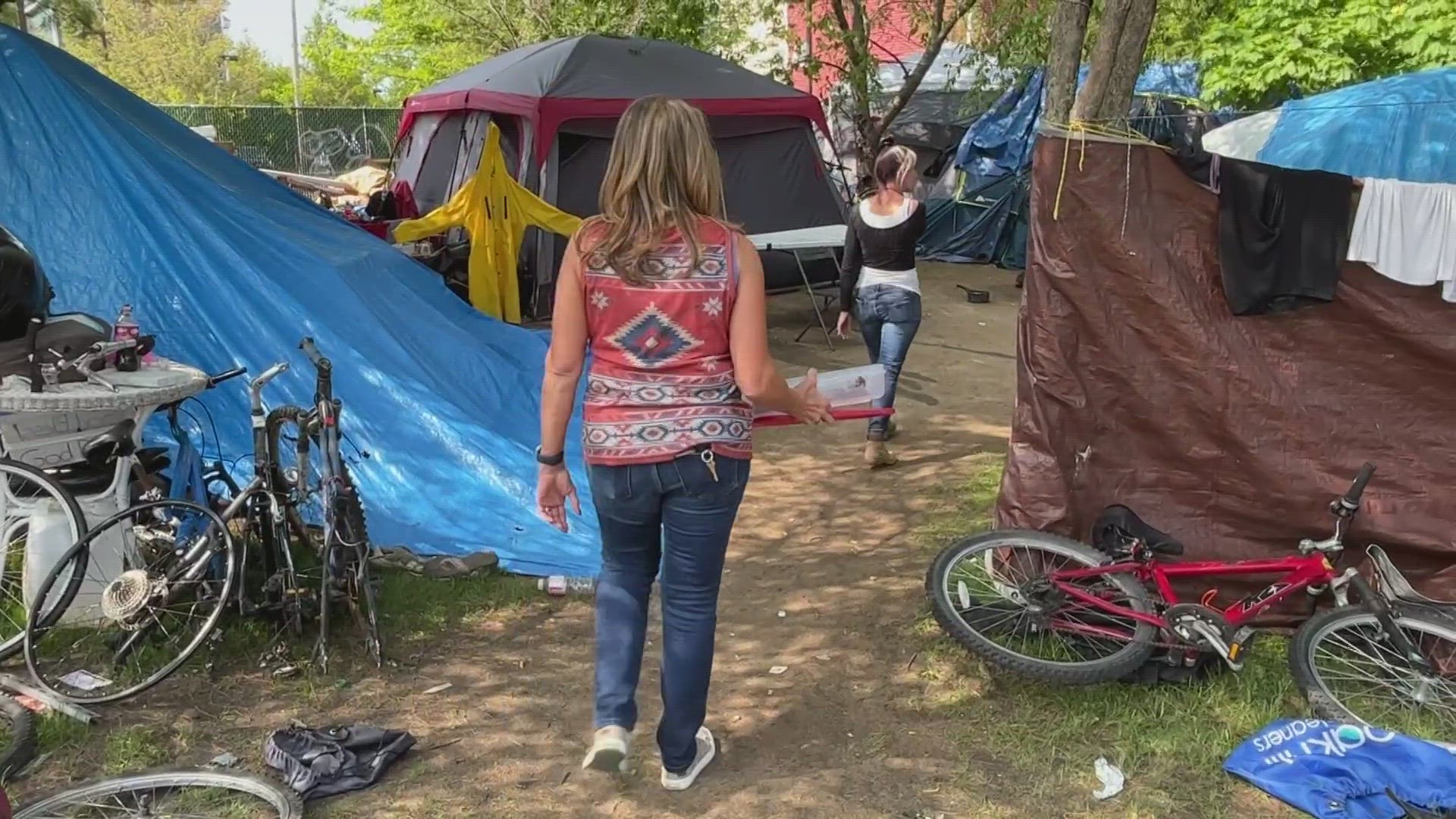PORTLAND, Maine — The workday almost always starts with a trip to the methadone clinic. Terri McGuire and Courtney Bass drive people there for treatment, a task that typically lasts a couple of hours. Then, they return to Portland to spend the rest of the day providing help to the hundreds of people in the city who live on the streets, in the fields, in the woods.
"People are always asking, 'What do these folks need?'" McGuire said. "And I always say they need compassion."
That quality is one that McGuire and her work partner, Bass, have in abundance. The two are part of what’s known as the HOME Team, an outreach program sponsored by Milestone Recovery—a nonprofit that for more than five decades has provided services to people in Portland who are unhoused or suffer from mental illness or substance use disorders.
On a sunny spring day, Bruce Cavallaro was one of many people living in tents in a small, grassy area between Marginal Way and I-295. Bass and McGuire stopped by in their van and began to hand out water, sandwiches, and chips, all of them free, all dispensed with no questions or judgment.
"Pretty much whatever’s needed, they really help with," Cavallaro said. "It’s a lifesaver, really, when we’re hungry."
The HOME Team also provides other necessities: razors, underwear, toilet paper. McGuire even gave out cupcakes she baked at home. Such offerings, no matter how basic, can make someone’s day.
"These are people’s relatives, their sons and daughters and brothers and sisters, and sometimes parents," McGuire said. "We know them all. We’re friends with them and try to take care of them as best we can."
Bass, who’s been doing this work for 10 years, has a special bond with many of the people she helps. Years ago, in the grip of alcohol and drugs, she was in and out of jail and lived for a while out of her car. The reality is that not many of the stories of the people on the street will have happy endings, but even the small victories are rewarding.
"Sometimes it’s a female that just was in a really bad spot but we were able to get her to safety and meet her basic needs," Bass said. "Those are the successes."
The work takes an emotional toll. McGuire and Bass have shed plenty of tears with the people they help, many of whom will die young.
"We lose people probably every week," Bass said. "A lot of those people we build pretty good relationships with, so it feels like you’re losing a family member sometimes."
It is not just a job—it’s more of a calling. Bass can’t envision the day when she’ll stop.
"I’ll probably do this work until I can’t walk anymore," Bass said.

